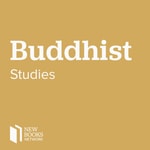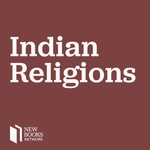NBN Seminar – Détails, épisodes et analyse
Détails du podcast
Informations techniques et générales issues du flux RSS du podcast.

NBN Seminar
Marshall Poe
Fréquence : 1 épisode/90j. Total Éps: 39

Classements récents
Dernières positions dans les classements Apple Podcasts et Spotify.
Apple Podcasts
🇫🇷 France - philosophy
27/03/2025#95🇫🇷 France - philosophy
26/03/2025#81🇫🇷 France - philosophy
25/03/2025#59🇫🇷 France - philosophy
27/01/2025#92🇫🇷 France - philosophy
26/01/2025#76🇫🇷 France - philosophy
25/01/2025#53🇫🇷 France - philosophy
15/11/2024#93
Spotify
Aucun classement récent disponible
Liens partagés entre épisodes et podcasts
Liens présents dans les descriptions d'épisodes et autres podcasts les utilisant également.
See all- https://thegooddrone.pubpub.org/
31 partages
- http://spinweaveandcut.com/.
5 partages
Qualité et score du flux RSS
Évaluation technique de la qualité et de la structure du flux RSS.
See allScore global : 48%
Historique des publications
Répartition mensuelle des publications d'épisodes au fil des années.
Discussion of Massive Online Peer Review and Open Access Publishing
Épisode 15
vendredi 29 mars 2024 • Durée 32:15
Brian Greene, "Until the End of Time: Mind, Matter, and Our Search for Meaning in an Evolving Universe" (Random House, 2020)
Épisode 20
mardi 2 juin 2020 • Durée 02:00:37
McKenzie Wark, "General Intellects: Twenty-One Thinkers for the Twenty-First Century" (Verso, 2017)
Épisode 14
jeudi 6 décembre 2018 • Durée 01:04:01
Steven Shaviro, “Discognition” (Repeater Books, 2016)
mardi 20 novembre 2018 • Durée 01:07:45
Yves Citton, “The Ecology of Attention” (Polity Press, 2017)
lundi 13 août 2018 • Durée 01:10:31
Christian B. Miller, “The Character Gap: How Good Are We?” (Oxford UP, 2017)
samedi 13 janvier 2018 • Durée 55:57
Kate Manne, “Down Girl: The Logic of Misogyny” (Oxford UP, 2017)
lundi 25 décembre 2017 • Durée 01:03:04
Dinty W. Moore, “The Story Cure: A Book Doctor’s Pain-Free Guide to Finishing your Novel or Memoir” (Ten Speed Press, 2016)
vendredi 24 novembre 2017 • Durée 49:54
Theodore Vial, “Modern Religion, Modern Race” (Oxford UP, 2016)
lundi 6 novembre 2017 • Durée 48:42
James L. Kugel, “The Great Shift: Encountering God in Biblical Times” (Houghton Mifflin Harcourt, 2017)
lundi 23 octobre 2017 • Durée 47:46









